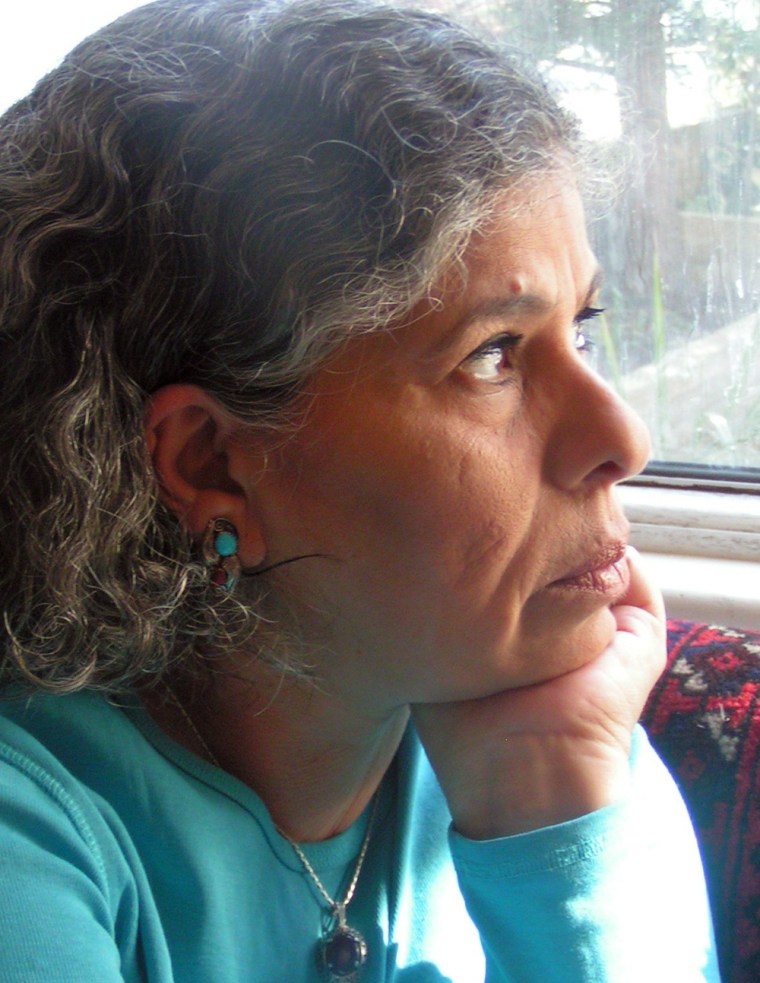When Haifa Zangana was captured by Iraq's secret police in 1971, she feared she might never see her friends or family again.
The 22-year-old University of Baghdad student was sent to Qasr-al Nihaya prison, or “Palace of the End,” where she was subjected to brutal interrogations for days on end. Zangana's captors beat her and deprived her of sleep, food and even sanitary napkins, as they tried to get her to name other young revolutionaries.
When the initial interrogations were over, she was transferred to the infamous Abu Ghraib. She says she was released only as a result of her family’s relentless efforts. Almost four decades later, she still feels guilty for surviving when so many of her friends died in prison.
Zangana's account of those days, "Dreaming of Baghdad," was recently released for the first time in the United States. She says the book, which was originally published in France in 1990, was the first written by an Iraqi woman dealing openly with torture.
“I thought I could break this barrier myself, maybe we can talk about it, and in the future put an end to it, by dealing with it, facing it,” she said in an interview.
Carrying the scars of a brutally oppressive regime, Zangana wrote the book because she felt obliged to share the hardships of being a politically active woman in Iraq in the 1970s. Today, she fears Americans don’t hear often enough directly from female Iraqis, so she spends considerable time and energy spreading the word about their lives.
“Women in Iraq are losing on two levels,” Zangana said. “First as citizens, and second as women, based on their gender.” They are left with the burden of looking after their family as breadwinners are killed and those who remain are left with virtually no job prospects.
‘No space to breathe’
Zangana, who was born to a middle-class Kurdish-Arabic family in Baghdad, became politically active as a student at the University of Baghdad. She joined other young revolutionaries in the fight against Iraq's oppressive regime, which left “no space to breathe” for any political opposition.
“You are fine as long as you don’t say ‘No’ to anything established or decision taken by the Baath Party… If you have the courage to oppose the regime, there is torture, there are executions,” she said about that time.
Because it was easier for women than men to travel freely, Zangana was given responsibility for maintaining communication between various offices of the “Central Leadership,” a faction within the influential Iraqi Communist Party in 1970s. Zangana and her fellow party members aimed to overthrow the Baathists and advocated for Kurdish self-determination.
Zangana was caught by the police on a hot day in August 1971, as she returned to Baghdad from the south of the country, while people were having fiestas and the streets were empty. She was kept for two weeks at Qasr-al Nihaya detention center for "initial interrogations."
Torturer takes pity
Terrorized by the howls of the tortured, she lost her ability to sleep. At night, she listened to their screams and pleas for mercy in an effort to recognize familiar voices from fellow dissenters, who might have been detained like herself. A torturer took pity on her when he saw her legs covered with menstrual blood, and gave her a piece of cloth.
Once, an interrogator accused her of leaking information to her fellow party members while she was still in prison.
“Do you think a few whores and bastards can jeopardize our government?” he asked, as Zangana recalled in her memoir. She was forced to sign a letter that accused her of joining the Iraqi Communist Party to meet new men and seek sexual pleasures.
Zangana spent the next six months in Abu Ghraib and then a prison for prostitutes, which she claims was an attempt to humiliate her.
Following her release, Zangana had to report to the security forces once a month about her activities. She felt like a burden on her family in Baghdad, and decided to flee to London in 1976 as a political exile.
For years, Zangana tried to suppress her memories of jail: the tiny cells with curtains stained with blood and urine; the flashbacks of beaten, disfigured bodies thrown in front of her for purposes of intimidation.
She even had to teach herself to sleep again, because many nights she would suddenly wake up at 2 a.m., “the time when they used to lead me out of my cell for interrogation.”
‘Huge gap’ in perception
As Zangana looks at Iraq today, she says the extensive loss of life is beyond what a society can handle, with repercussions for women that often get lost in translation.
Zangana tells the story of a Western aid worker who asks an Iraqi woman what she thinks about gender equality and how it feels to wear an abaya, a garment that’s used to cover up the body.
The aid worker expects to hear that she felt oppressed by the abaya. But the woman responds that she’s “willing to be painted black from top to bottom” as long as she can have electricity.
“There’s kind of this huge gap,” Zangana said, between the reality about women’s lives in Iraq and how people perceive it to be in the West. It is important to pay attention to women’s voices today, she believes, to be able to see the full picture about the human cost of the war.
And she insists on the vision that drove her youthful idealism more than 30 years ago.
“The time spent on preparing for wars and invasions,” she said, “if it [was] only spent on…building bridges and helping to create a dialogue among people, we would have been living in a far better world now.”
More on: Torture
